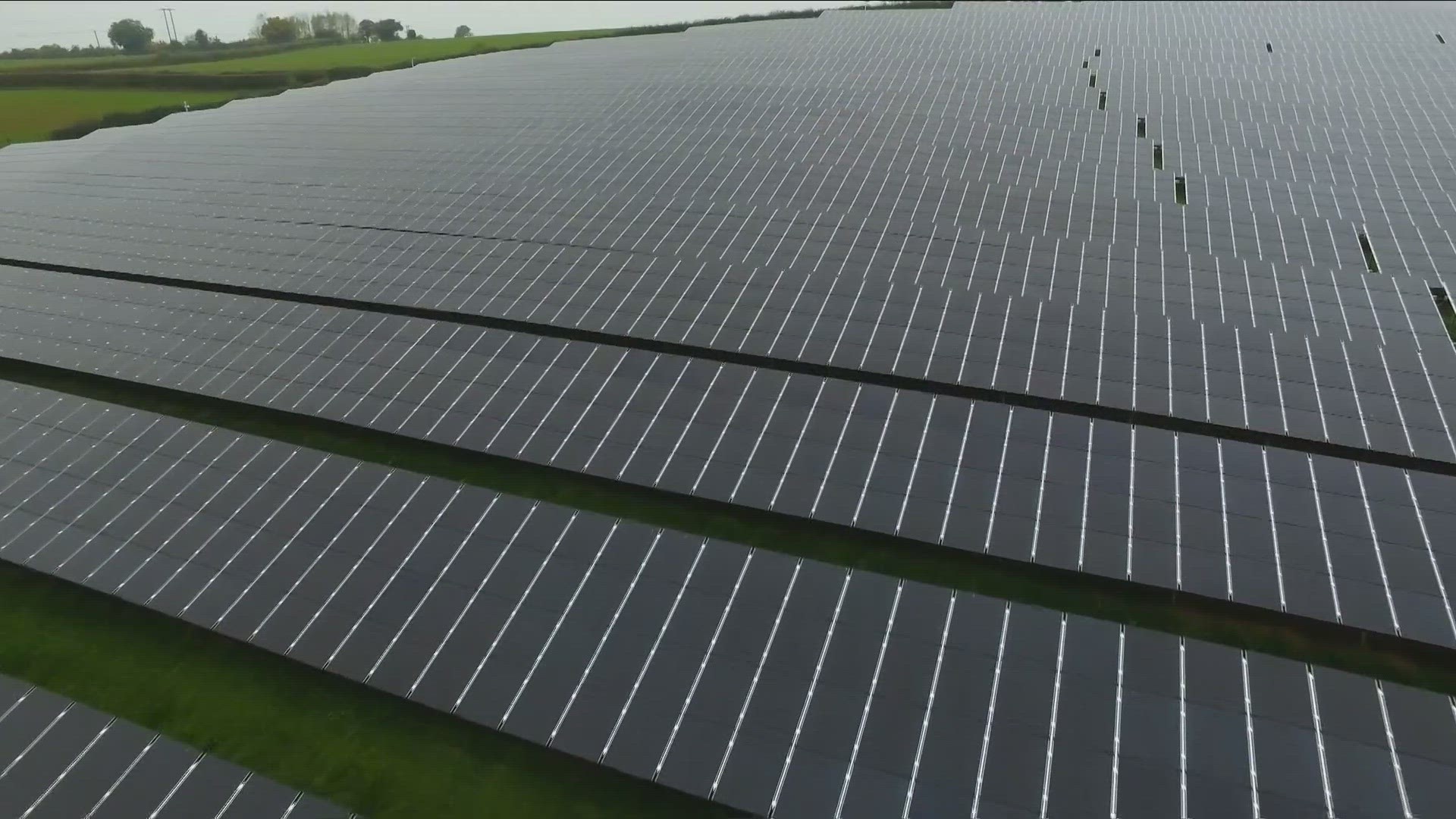WATKINS GLEN, N.Y. - Last-minute cancellation of the huge Phish Curveball music festival at Watkins Glen became unavoidable when cloudy water began flowing from taps in the village, a state official said Friday.
The cloudy water was first observed Thursday morning, just one day before the popular rock band was to begin playing.
"I think it’s just unfortunate timing for this event in Watkins Glen. I’m not sure that anybody could have anticipated those events in time to do anything different," said Bradley Hutton a deputy commissioner of the state Department of Health.
Cloudiness in drinking water can be associated with the presence of harmful bacteria, and the law required a mandatory order that Watkins Glen's drinking water be boiled before use.
Boiling enough water to satisfy the needs of the 40,000 expected Phish fans was impossible.
Many of the fans were going to camp at the Watkins Glen International campground and needed water for drinking, cooking and bathing from late Thursday through Sunday.
A frantic attempt to arrange sufficient supplies of water in bottles and tanker trucks proved futile. "Ultimately, it was decided they did not have the ability to obtain it in the time frame needed," Hutton said.
State health official had no choice but to withhold a necessary permit, forcing cancellation of the festival, Hutton said.
The water problem was born in the fierce storms that drenched the Finger Lakes region Monday night and Tuesday.
Six to nine inches of rain fell in the storm's epicenter — a section of the southeastern shore of Seneca Lake roughly 10 to 15 miles north of Watkins Glen, which sits at the lake's south end. But the entire area around the lake received at least two inches of rain early Tuesday.
The rain rushed down the steep slopes that surround the lake and swelled numerous creeks. That rushing water scoured creek beds and hillsides, and carried a huge volume of debris into the lake — including soil, tree branches, shrubs, dried leaves and bits of other organic matter.
"We got pummeled here with the weather. This whole valley kind of cleaned itself and went into Seneca Lake," said Lee Kent, the utilities superintendent for the village, which supplies drinking water to about 2,500 customers, including the international speedway and its campground.
Animal feces and human waste from flooded septic systems likely was washed in as well. Hutton said that's a common after-effect of such floods.
The presence of the debris was obvious. "It’s just a mud pile going out in the lake. You can see it today. It’s huge out there," Kent said Friday.
Officials in Seneca County talked Wednesday about the possibility of turbid water reaching the Waterloo drinking-water plant near the lake's north end.
But Kent said officials in Watkins Glen had no indication it would affect their supply, and had no conversation about the possibility. Watkins Glen draws its water from an intake in the middle of the southern end of Seneca Lake.
The water was clear Tuesday and Wednesday, with no sign of turbidity, or cloudiness, but things changed fast Thursday morning.
"It finally reached our intake pipe, which we didn’t know it was going to," he said. "Everything came in so fast and hard. Our turbidity was zero, then it just went off the chart."
The village notified state health officials Thursday morning that the water entering their treatment plant was highly turbid and that they weren't able to remove as much of the bits of debris as required.
At times Thursday morning the treated water was 15 times more cloudy than allowed by state law.
Phish fans break down their camp Friday morning, Aug. 17, 2018, after the Curveball festival in Watkins Glen, New York, was cancelled due water issues. Brent Hallenbeck, Free Press Staff Writer
The danger of turbidity is this: Particles of soil and organic matter suspended in the water can interfere with the chlorination meant to kill any bacteria, and can shield those bacteria so that they slip through filters and make their way to consumers.
It wasn't the plant wasn't working properly; it was fully compliant with all operating rules, Hutton said.
"In our opinion, it was a real unprecedented change in the quality of the source water that overwhelmed the plant’s normal ability to filter out debris," he said.
Even if officials had recognized the possibility of a turbidity problem a day earlier and raised a red flag for the concert promoters, it likely would have made no difference.
Hutton said they found they would have needed up to three days to arrange for enough water to be trucked in to the festival.
Village water remained excessively turbid Friday — so turbid, in fact, that proper testing can't be done for bacteria, according to Kent.
The boil-water advisory will remain in effect until turbidity returns to normal levels and two subsequent days of testing verify the water is free of potentially harmful bacteria.
SORR@Gannett.com



